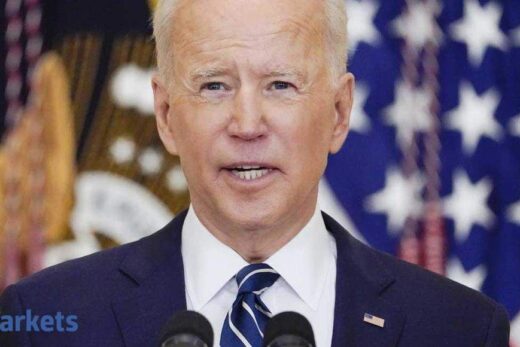Such is the confidence among investors about growth revival that their biggest concern now is inflation, and not the risk of this recovery faltering.
As the global economy looks set to make a summersault back to growth path, instead of limping, as it had done in the aftermath of the Global Financial Crisis of 2008-09, discerning investors are worried if markets will see another version of the Taper Tantrum, when the US Fed is forced to react to the rising inflation fears.
Back in 2013, the then US Federal Reserve Chairman Ben Bernanke sent US Treasury bond yields soaring and risk assets tumbling when he had abruptly signalled that the US central bank would soon begin tapering bond purchases initiated in the aftermath of the Lehman crisis.
Bernanke’s comments sparked a 150 basis points surge in US 10-year bond yields to 3 per cent in a matter of months, and in emerging markets like India, they caused a balance of payment crisis not seen during the financial crisis itself.
Naturally, investors want to pre-empt a repeat of this episode and guard their portfolios against the vagaries of a bond market tantrum.
Economists at ING believe investors could get an answer as soon as June 16, when the US Federal Reserve will read out its policy statement. “The June 16th FOMC meeting, where a new round of forecasts will be presented, could be the first time the Fed may feel serious pressure to take its foot off the accelerator (trim down bond purchases),” ING said in a note.
Currently, the US Federal Reserve is buying close to $80 billion worth of US Treasuries every month and $40 billion worth of mortgage-backed securities as part of its quantitative easing ad infinitum announced in the middle of the Covid-19 crisis in March.
It is natural to expect the US Federal Reserve to eventually trim down its bond purchases, especially as the US inches closer to herd immunity from Covid-19 amid faster vaccine rollout, which then can help the economy function at full steam and allow households to spend and regain lost jobs.
So what happens when the hero of the bull market, Jerome Powell, says we are slowing down the printing press?
In its ugliest form, such an indication of tapering from the Fed around June and subsequent reduction in bond purchases from the December quarter could send US bond yields surging as much 75-100 basis points in a space of a month to above 2 per cent level.
Emerging market equities, which have benefitted from the easy monetary policy of the US Federal Reserve to an extent, will bear the brunt, with the expected maximum drawdown of around 15%. The collateral damage will be much more for equities in China, India, Taiwan and South Korea, which have the largest weightage in the broadbased emerging market indices, ING said.
Will that bring the ongoing bull market in equities to a pre-mature end? Most likely, not. “Recall as well, how the summer of 2013 proved barely a blip in the long-term equity bull market. There is no reason to think that any bond tantrum-induced equity correction this summer would be more than that, just a correction,” ING said.
In the most likely scenario, though, the effect could be less severe depending on how investors perceive the Fed action.
Economists say if investors read Fed’s indication to lower bond purchases as a sign of protecting bonds from the vagaries of inflation, then the impact will be lesser. It will be lesser still if the US Fed decides to pursue yield curve control that will put a leash on long-term bond yields, as Christopher Wood of Jefferies believes it will.
“The base case should be yield curve control in the US, and financial repression even in the face of evidence of a cyclical recovery. But if the Fed is planning to do this, it probably needs to move relatively early in the yield curve steepening cycle, triggered by the anticipated cyclical recovery,” Wood, Head of Global Equity Strategy at Jefferies, argued in a recent note.
A Taper Tantrum-like scenario will most likely be a sucker punch to investors made complacent by the linear rise in equity market since April, but it will not knock out the bulls.



